How Colin Firth inspired ‘Bridgerton’ and other surprising stories from 6 top TV bosses

- Share via
Early this month before the confusion of the CDC’s notice that masks are no longer necessary (or are they?), COVID and its devastating intrusions into life — and television productions — was top of mind for the six storytellers gathered remotely, some from as far away as Amsterdam, for The Envelope’s annual Showrunner Roundtable.
“It’s really strange now to think of a new television show or a movie, you can’t avoid COVID. Otherwise, you’re moving in the past, or the future. I mean, it’s just what you’re going to go through. It has to be part of the narrative,” said Steve McQueen during the May 2 chat. “When I see someone even going for a handshake I’m like, ‘Whoa, wait a minute.’ The level of anxiety just hits the roof,” the director of Amazon Prime’s five-film anthology “Small Axe” added.
“Well, we don’t know whether it’s going to be, is it two more years that we’re all going to be in masks? Because in that case, that would have to be in the show,” said Alena Smith, creator of Apple TV+’s “Dickinson,” a fictionalized look at the life of poet Emily Dickinson. “Or is it like, this is a discrete event that we can have in the past of the show?”
“It’s really strange now to think of a new television show or a movie, you can’t avoid COVID. Otherwise, you’re moving in the past, or the future.”
— Steve McQueen
“I’m just sorry for the young people and, of course, the older people because they should be going out and partying and falling in love and doing whatever. It’s all sort of on pause,” McQueen added.
“I don’t know if it’s on pause. I think it’s how it is. This is our life. You can fall in love with a mask on, come on Steve,” argued NatGeo’s “Genius: Aretha” showrunner Suzan-Lori Parks.
Bruce Miller, who created Hulu’s “The Handmaid’s Tale,” Chris Van Dusen of Netflix’s popular “Bridgerton” and Jen Statsky, who co-created the new HBO Max comedy “Hacks,” joined in the conversation that covered adapting to a virtual writers’ room, what TV shows they binge-watched in lockdown and the inspiration of Colin Firth dripping wet in “Pride and Prejudice.”
Their conversation here has been edited for length and clarity.
Alena, I know you started work on the third season of “Dickinson” through Zoom; you conducted your writer’s room this way. How would you say that affected the creative process?
Alena Smith: Don’t get any ideas, studios and networks. We need our writer’s rooms back. But this was a really special experience because we were writing Season 3, which takes place in the Civil War, and we were working last summer over Zoom in the midst of a pandemic and the Black Lives Matter uprising with a writers’ room that was diverse in all kinds of ways.
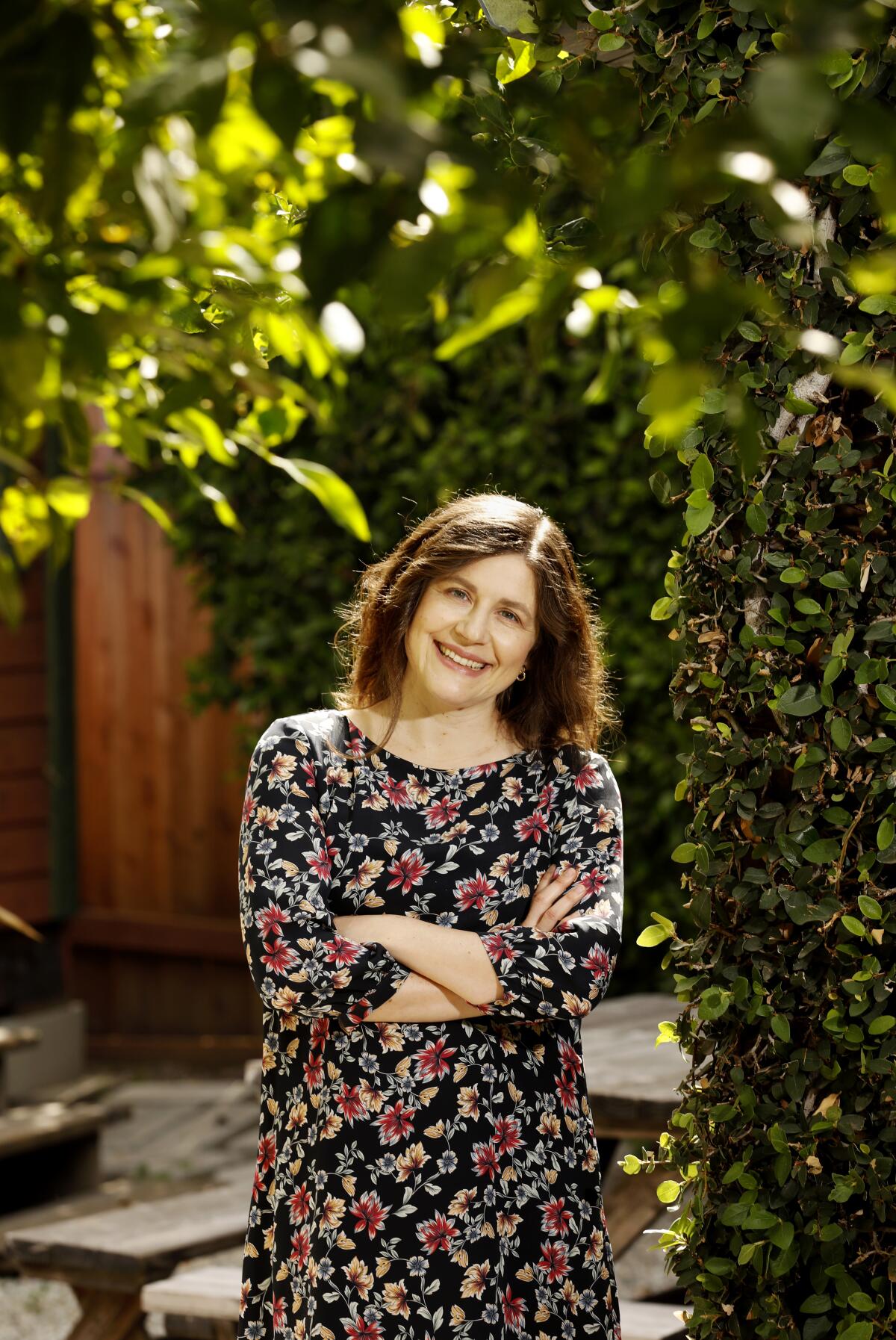

I felt like our Zoom room became a kind of consciousness-raising. It was a place where I could come together with some of the minds that I most respect and talk about what was happening and translate it into story. It’s also wild because there are people in that writers’ room that I’ve still never met in person. I had basically hired them over the internet.
Bruce Miller: It does change things to be operating remotely, but I don’t know whether it’s necessarily positive or negative. I do like having more time to think by myself, before and after the writers’ room [with Zoom].
Steve, I want to talk about “Small Axe” — a project that you have been working on for 11 years. What is it like when there’s a project that keeps tugging at you?
Steve McQueen: It was about timing more than anything else. My own timing, where I was in my life at a certain moment. I knew once I planted the seed 11 years ago, I wanted to see how it sprouted, how well it transformed and what it translated into. And it became a want and a need. It was about my development. It’s like seeing your parents when you’re a teenager and then seeing them when you’re an adult and how you see it differently. So it was about preparing myself in my own sort of maturity during that time.
Have you all had projects like that, that are gnawing at you to pay attention to them, and how do you know when you should give up?
Jen Statsky: When every network passes, that’s when you say no. [Co-creators Lucia Aniello and Paul W. Downs and I] had the idea for “Hacks” like six years ago. And we just got pulled in different directions, but we kept coming back to this idea. I think you can know something is worth pursuing if you’re hanging out and you keep coming back to this idea, that’s kind of a sign that there’s something there.
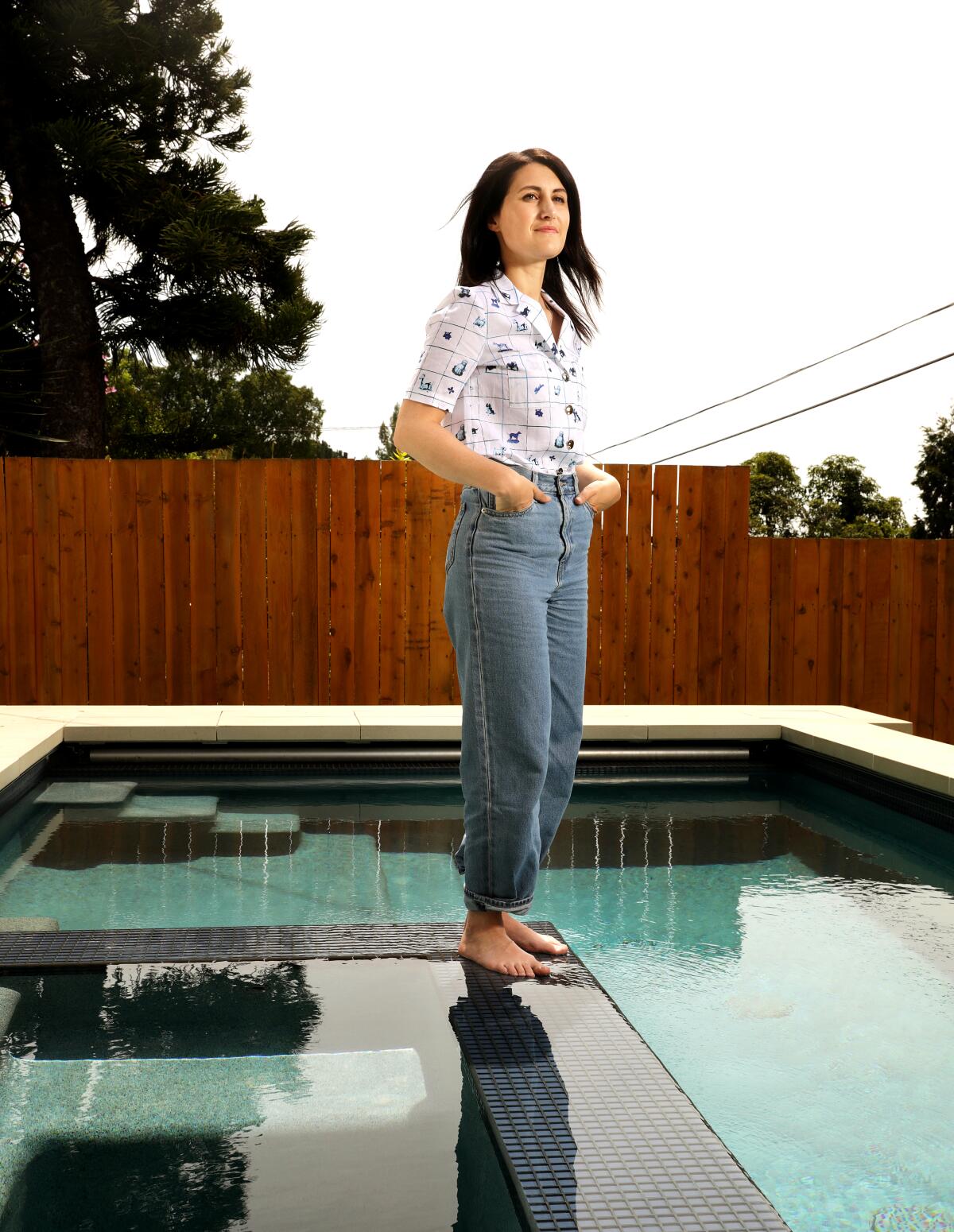

A lot of your shows revolve around real figures. Suzan-Lori, when you’re exploring a life as rich and complicated as Aretha Franklin’s, what goes into shaping the narrative?
Suzan-Lori Parks: Every choice we made in making “Genius: Aretha” was how to look at her life through the lens of genius. The word “genius” is most often used historically to note white European. So to really look at the life of a Black American musician, woman, mother, brilliant singer through the lens of genius, our choices were made from that. We use our poetic license like we all do when we’re writing a historical character. We’re going to work that poetic license.
Alena, can you talk about playing with the details of Emily’s life and the themes that emerge from her poems to reflect the realities of today?
Smith: It’s a funny thing with our show, because while everything we do is somewhat grounded in fact or biographical detail, or a sort of found scrap of Emily’s writing, I’m not particularly concerned with representing the real Emily Dickinson. I am interested in representing the sort of cultural avatar of Dickinson — what she means to us now, which has a lot more to do with her creative spirit and certain kind of fundamental paradoxes or ironies of her life. We are really using the past as a kind of Instagram filter for the present. The past and the present are not as far apart as we like to think, particularly for women, people of color, queer people, anyone who has been traditionally marginalized by what we call history.
Chris, you seem to have nailed the idea of people of color in history. How did that come about for “Bridgerton”?
Chris Van Dusen: You look at these period pieces, you look at the books and they are lily, lily, white. Injecting race into this world was something that I really wanted to do, and I became a little obsessed as far as cracking that. The solution came from working with historians and consultants, and really early on, there was this theory about Queen Charlotte and how Queen Charlotte was technically England’s very first actual queen of color. And that’s something a lot of historians feel that there’s evidence for today. Once I knew I was going to have this Black queen in this world, everything else started to fall into place.
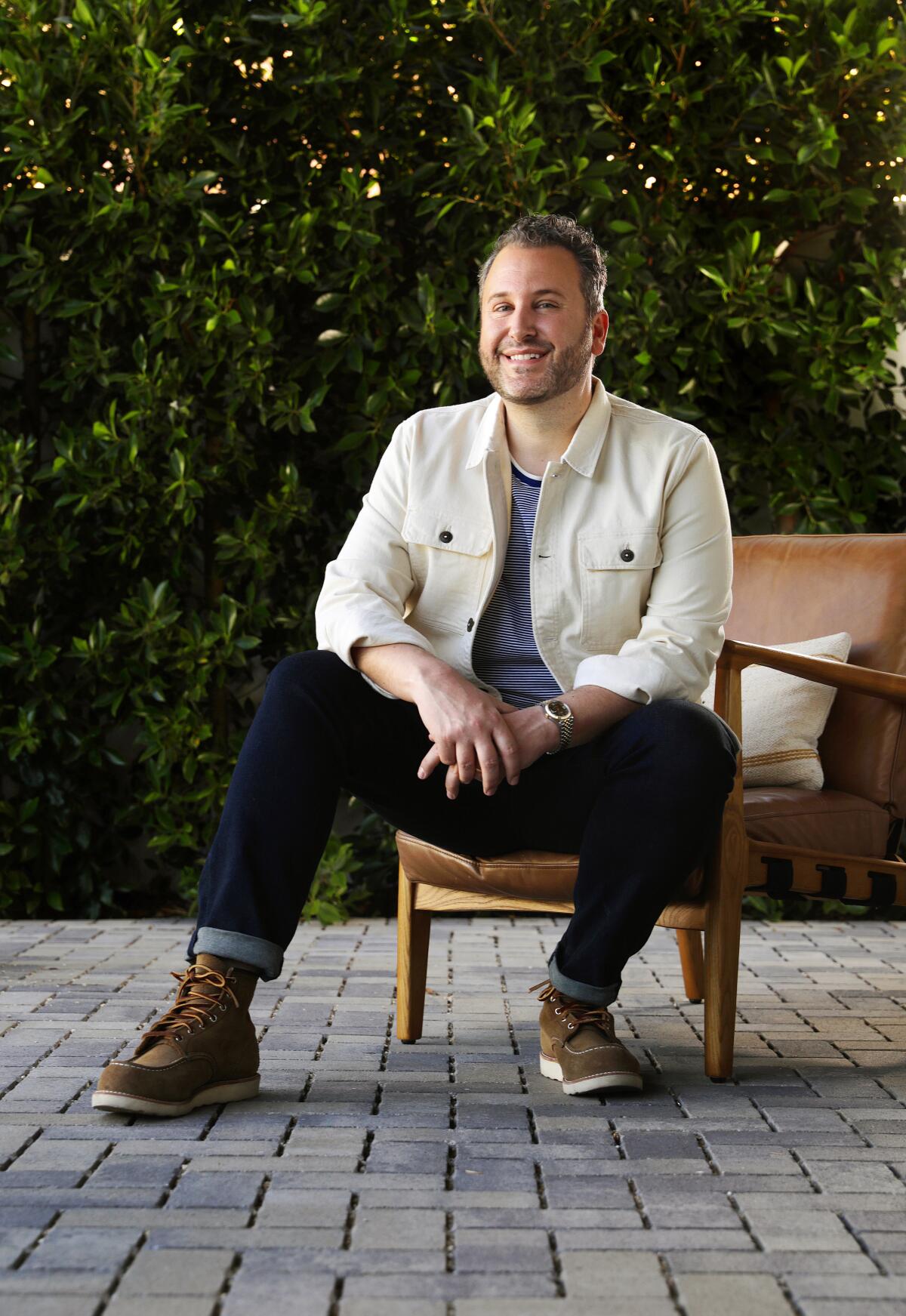

What other art informs the work that you do?
Van Dusen: I wrote the pilot in London and spent as much time in the U.K. as possible and going to amazing country homes and castles and palaces. I looked at a lot of period pieces. And there’s a 1995 “Pride and Prejudice” BBC adaptation that was just ... I mean, Colin Firth in his white shirt, coming out of the lake. I watched that on repeat, and that was a lot of inspiration for me. I always wanted to do a period piece that pushed a few more boundaries and challenged the idea of what a period piece could really be.
What was one of the most difficult days on the set or in the room?
Statsky: As a showrunner, [even] before COVID, you have a responsibility to make sure everyone has a healthy work environment. And so, COVID just ramped that up 1,000%. And so, every morning there was this waiting period when everyone got tested. It was like waiting on a pregnancy test. It was like, OK, this person has tested [positive]. We need to pull this person out. We’re going to contact trace.
Parks: First and foremost, we have to keep everybody safe. I mean, when someone tests positive, our first thought is, “Are they going to be OK?” And making sure that they have all the things that they need to recover. But our worst day was when we shut down for the third time. I feel like all hell broke loose. When we finally came back, we had 12 days to finish. I mean, you’re in there, cutting the script. You hope it’s going to all work as a story. We were in the belly of the beast, and our love for Aretha Franklin really pulled us through.
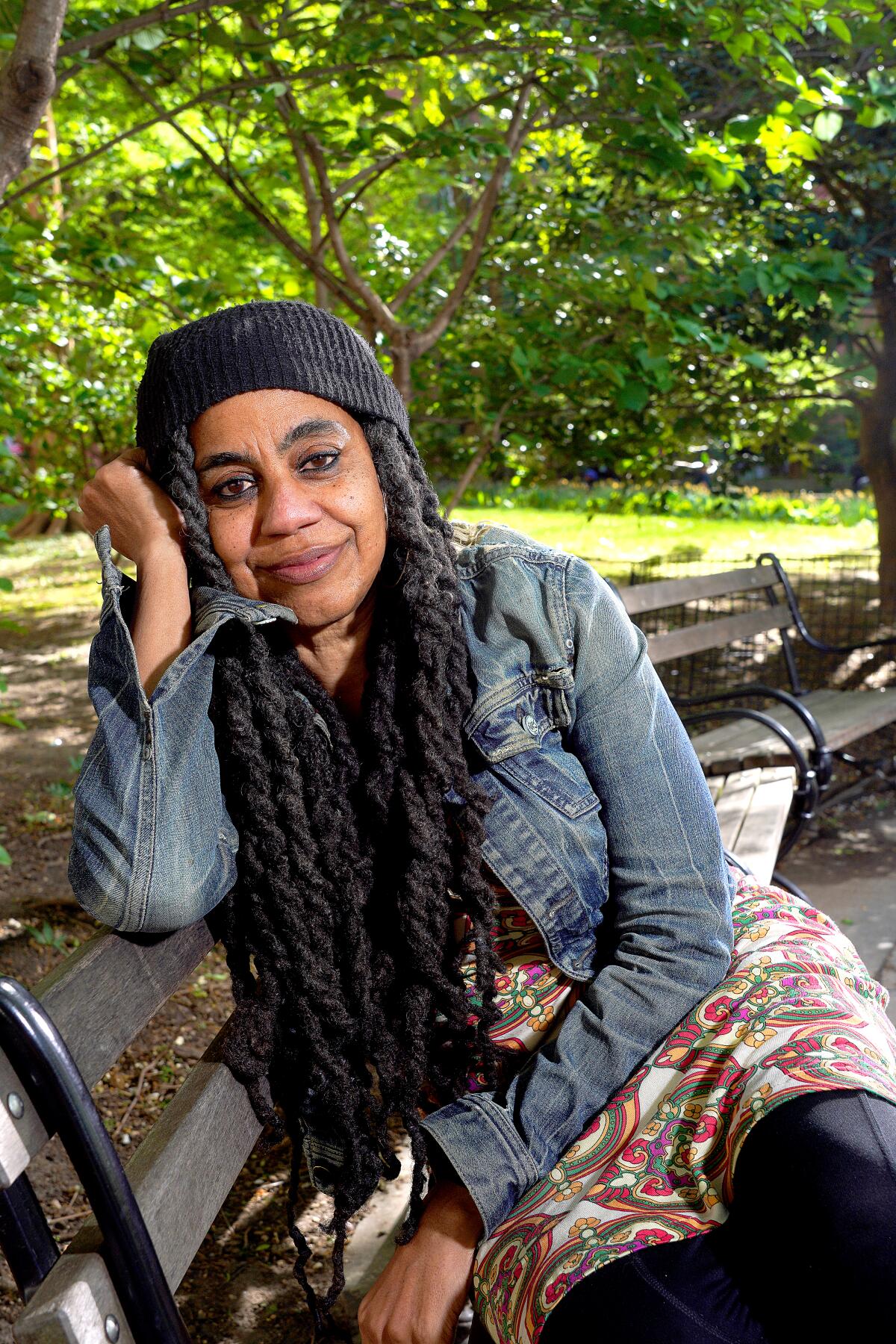

Alena, have you started yet?
Smith: We’re about midway through shooting Season 3. And so, we’re in it. It’s COVID, it’s New York. The most challenging thing is for the actresses who have to wear corsets, and then also are in double masks in between takes. And I just will never forget the first day that Hailee [Steinfeld] was shooting and she called me from her dressing room completely out of breath because she’s like, “I’m in a corset and a mask.” And I’m like, “This might not even be safe.”
What would you say to someone reluctant to engage with your work because of the challenging subject matter?
Miller: First of all, [“Handmaid’s Tale”] shouldn’t feel like an entertaining experience, as weird as that is. It is in its own way diverting. I mean, it’s not diverting into a good place. It’s escapism, just escape to a terrible place. But after having lived through the last year and a half, I am the last person to tell someone to take on more stress if they don’t feel like they’d like it. And luckily, we can turn on “The Dick Van Dyke Show” or “Small Axe” one after the other. Make any TV evening you want. We live in a very good time, so save my show for another time.
McQueen: With our five episodes, there’s rough, there’s smooth, there’s joy, there’s pain. And also, it’s all about triumph. You know, “Mangrove” was about fighting the odds and winning. Every single one of the episodes is about fighting the odds and winning, so it’s actually triumphant. Sometimes you have to go through a gauntlet. It’s about getting to the other side. I mean, things like “Lovers Rock” are completely joyous.
Smith: I also think people are comforted by different things. And I just want to say to Bruce, thank you for “The Handmaid’s Tale,” because I find it comforting when people are honest about the dark stuff too. And it actually takes a lot to hold my attention and “The Handmaid’s Tale” absolutely does. And I really appreciate the unflinching-ness of it.
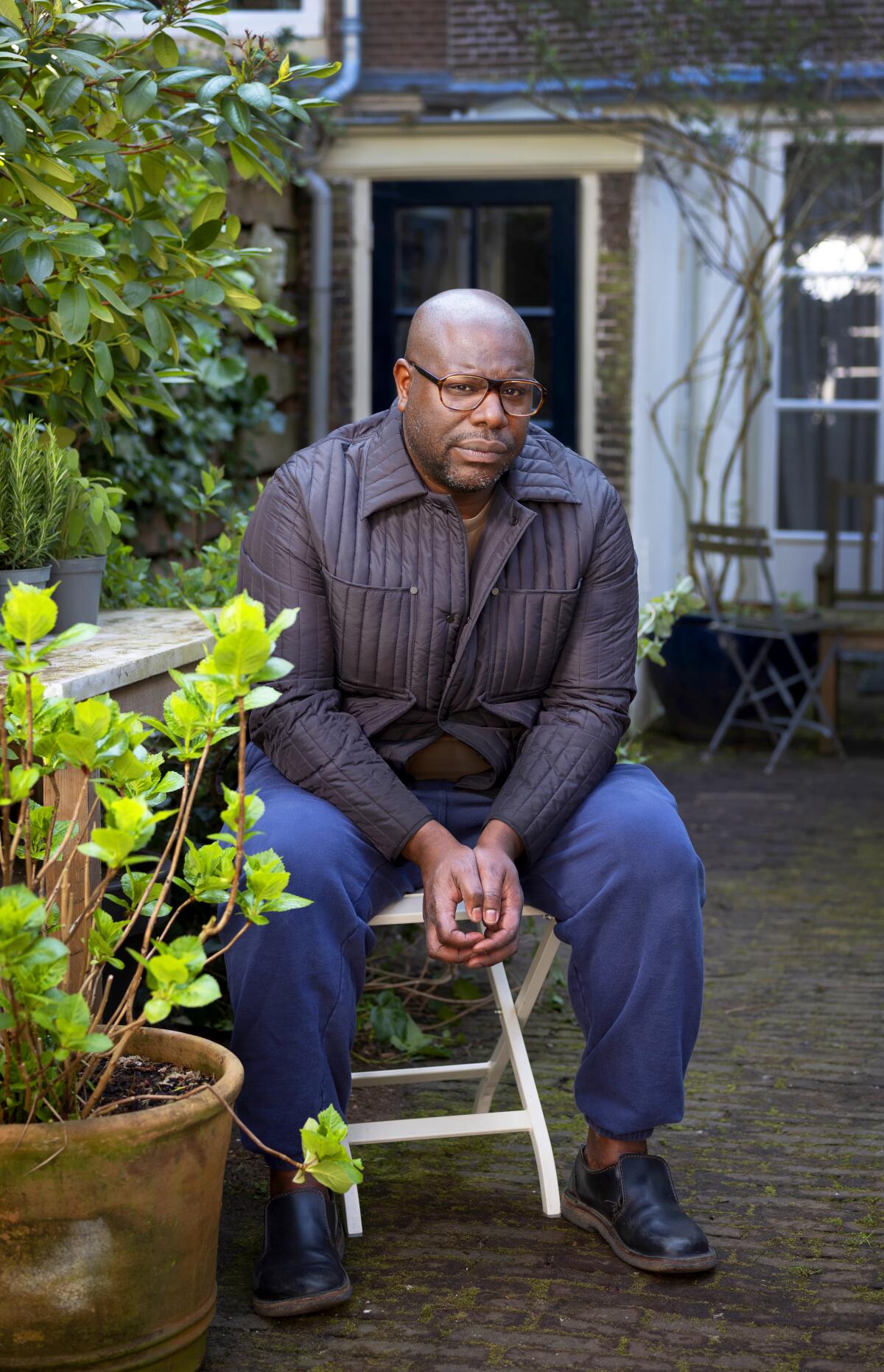

McQueen: I also feel like if ever there was a time when people are wanting information, want to be enlightened, wanting to engage, it’s now.
Now I’m curious what you guys have been watching during this time.
Miller: I have seen everybody else’s show. It didn’t happen any other year, so the pandemic has paid off in that way for me. Because all these guys have really put out some amazing, amazing stuff this year.
Van Dusen: I watch a lot of reality TV, truthfully.
What’s your show? “90 Day Fiance”? “Real Housewives”?
Van Dusen: All of those. All the “Real Housewives,” “The Challenge” — all the MTV shows, all the Bravo shows. Those things are really what take me away from the pressures of the day.
Miller: I’ve almost obsessively re-watched stuff. I watched “The Mary Tyler Moore” show. That was really fun. The production design and the wardrobe are amazing. I’ve been watching all sorts of old stuff like that. Really having a good time.
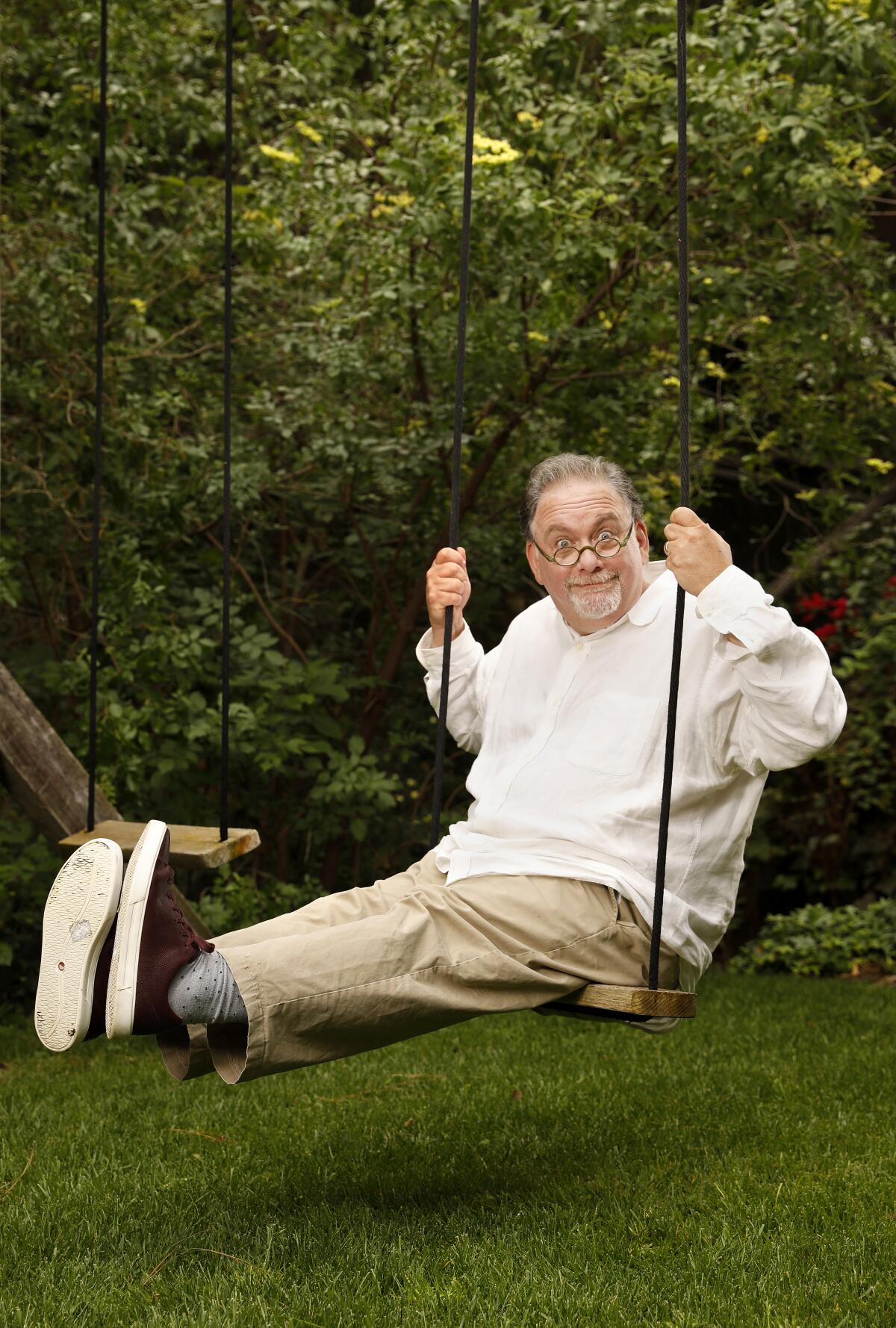

Statsky: For me, it’s a testament to Jean Smart because I would be at work with her all day, shooting, and then I would go home and re-watch “Designing Women” because it’s so good.
There’s a moment in Episode 2 where she is replacing a CO2 tank for her soda machine. It plays out so perfectly. Was she game?
Statsky: It’s funny because Jean does so much drama and she’s been so good. But Jean is so funny. She is a comedian, truly. And so she immediately got it. There’s so many things in that scene — like her putting her high heel up onto the shelf while she does it. And there are so many details in that scene that are all Jean.
Alena, you’re on a show where the fan base is very passionate. Has there been an audience reaction you were taken aback by?
Smith: The fans outsmarted me in one moment, which is when Emily and Sue have their glorious lovemaking extravaganza throughout the whole house at the end of Season 2 — spoiler! — the fans were like, “Oh my God, I guess Maggie’s in the kitchen and she made them all that food.” Maggie is Emily’s maid. And I hadn’t thought that Maggie was in the house at that time, but I like it, to enable some extra freedom for Emily to be herself and get it on.
Chris, there was a lot of reaction to the news of Regé-Jean Page not returning — were you surprised?
Van Dusen: I mean, I fell in love with him watching the show and working with him, and I knew that the world felt really strongly about him. But this was the plan from the beginning and really what got me excited about the project and drew me to these books was that every season is close-ended. So the first season was Daphne and Simon, and Season 2 is Anthony Bridgerton’s story. And so we have a new love interest for him, a new family coming to town, new characters, and it’s exciting; it keeps things fresh.
“I just don’t want to take the wrong lessons away from last year. The last year was a mother of invention, but we should look at it that way.”
— Bruce Miller
Final question, what most excites you and what most worries you about the entertainment industry right now?
McQueen: I think the appetite of the audiences, it’s huge and that excites me. They push us, the artists, writers, the creators to feel the curiosity, to fill that need, that want.
Miller: I would say, starting on the negative, I just don’t want to take the wrong lessons away from last year. The last year was a mother of invention, but we should look at it that way. The best thing I think is looking around this panel, just the diversity and the audience’s appetite for diversity in television and entertainment and shows —
Parks: Excuse me for interrupting, they were always wanting that, they never got it.
More to Read
From the Oscars to the Emmys.
Get the Envelope newsletter for exclusive awards season coverage, behind-the-scenes stories from the Envelope podcast and columnist Glenn Whipp’s must-read analysis.
You may occasionally receive promotional content from the Los Angeles Times.










